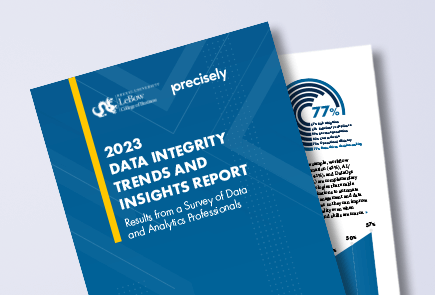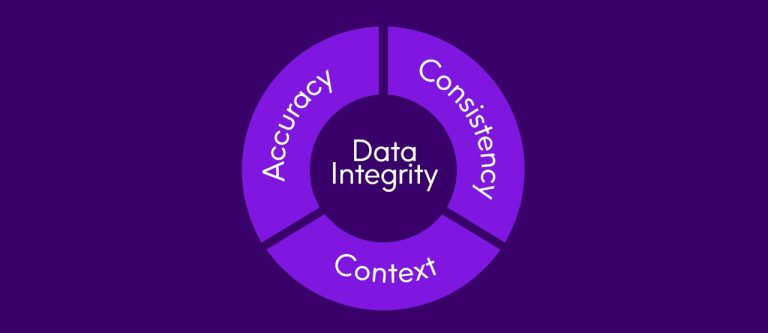
From Data Quality to Data Integrity: The Path to Trusted Data

The results are in! The 2023 Data Integrity Trends and Insights Report, published in partnership between Precisely and Drexel University’s LeBow College of Business, delivers groundbreaking insights into the importance of trusted data.
For the report, more than 450 data and analytics professionals worldwide were surveyed about the state of their data programs.
One key finding? In the context of improving their organizations’ data integrity, respondents cite data quality and data integration as priorities for 2023 and as challenges to data integrity. Data governance is a critical contributor to data integrity, and those organizations with governance programs are seeing results in better quality analytics and data.
Let’s explore more of the report’s findings around data integrity maturity, challenges, and priorities.
2023 Data Integrity Trends & Insights
Results from a Survey of Data and Analytics Professionals
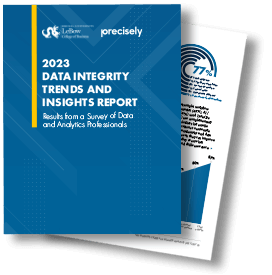
Building trust through data integrity
There are many paths that organizations can take to achieve data integrity and build trust in their data for confident business decisions.
The 2023 Survey of Data and Analytics Professionals, from the Center for Business Analytics at Drexel University’s LeBow College of Business (LeBow) in partnership with Precisely, explored three aspects of the data integrity journey: priorities for improving data integrity, maturity of data integrity practices, and challenges to achieving data integrity.
Echoing the pervasive theme of low data quality that emerged across the survey results, we see data quality playing a leading role in all three areas of inquiry
Zeroing in on data quality and data integration
The top-ranking priority for improving data integrity in 2023 is data quality at 53%, followed closely by data integration at 50%. Companies must advance the quality and integration of their data to make better data-driven decisions and thrive in today’s challenging business climate. Data security and privacy (45%) and data governance (41%) rounded out the top tier of 2023 priorities.
It is worth noting that, given organizations’ reliance on context for decision-making, we see data enrichment and spatial analytics as emerging technologies poised for growth once data quality, integration, and governance are addressed. For example, 77% of responding organizations rely on location for logistics, risk assessment, marketing, and facilities decision-making.
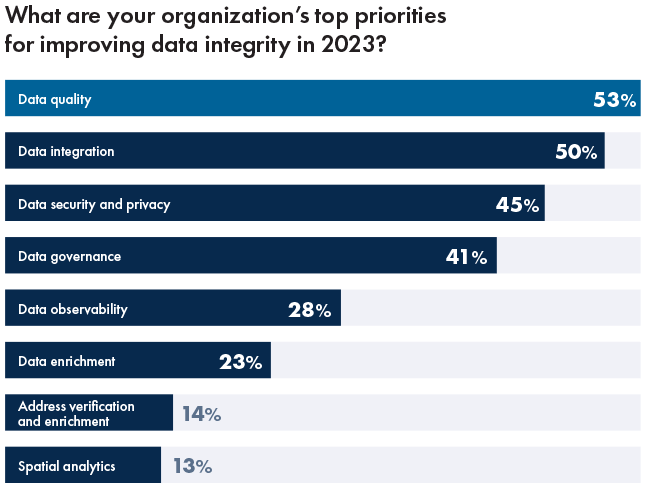
Mapping data integrity maturity to priorities
We asked respondents to rate the maturity of their organization’s data integrity practices as high, moderate, or low. With 52% of respondents rating data privacy and security maturity as “high” and 36% as “moderate”, this practice has by far the highest level of maturity. Maintaining high levels of data privacy and security is a long-standing organizational imperative reinforced by the need to comply with regulations calling for the same.
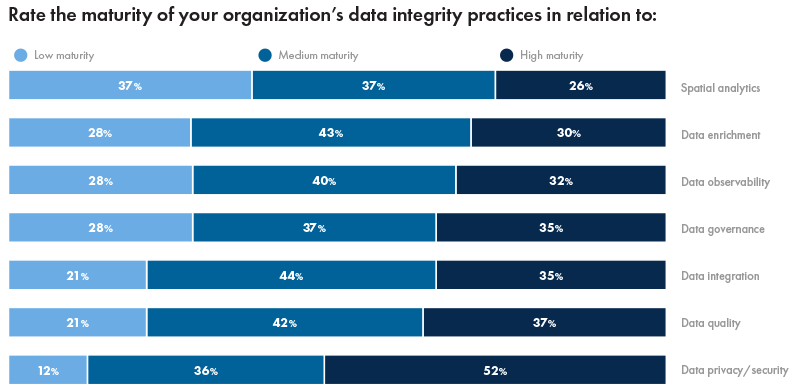
Because organizations have mature data privacy and security practices and thus an infrastructure to address a continuously changing environment, they can afford to elevate the pressing issues of data quality and integration as leading data integrity priorities.
With only 37% reporting a high level of maturity for data quality and 35% reporting a high level of maturity for data integration, this finding reinforces the need for organizations to increase investment in these areas to advance data integrity.
Maturity in spatial analytics and data enrichment are industry-dependent, with the greatest use in insurance, telecommunications, media and communications, manufacturing, and financial services.
Obstacles to data integrity
Data quality, at 50%, places first in survey respondents’ ranking of their organization’s top three data integrity challenges, followed by data privacy or security at 41%.
Real-time access to data in the platform of choice, an issue related to data integration success or failure, was ranked third at 37%. And proactive insight into data trends, patterns, and anomalies, with results from investing in data observability, ranked fourth at 30%.
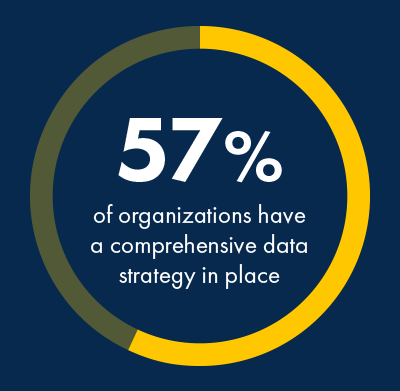
Advancing data integrity through data governance
Further down in the rankings of data integrity challenges, data governance falls into the fifth-place spot (27%), followed at 25% by a holistic view of business and technical metadata, which supports a strong data governance program. Consistently across all relevant survey questions, we find responses related to data governance falling in the middle zone.
We believe this consistent “in the middle” ranking relates to the finding that 60% of organizations surveyed have an ongoing data governance program in place, consistent with the results of the 2021 survey conducted by Precisely and LeBow.
The good news is that organizations are realizing added value from data governance in the areas that matter most. For the 2023 study, 57% of respondents report seeing improved quality of data analytics and insights, 55% report improved data quality, and 44% say collaboration is easier.
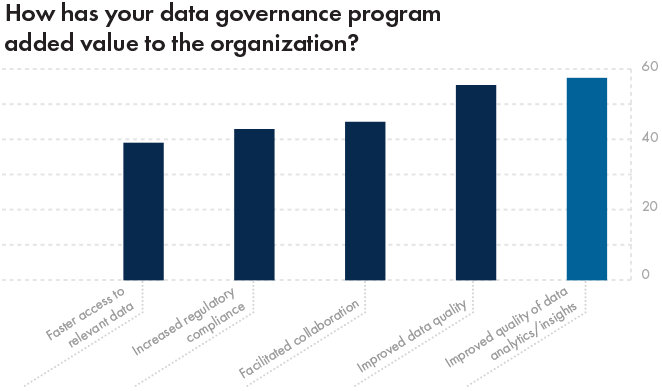
Get inspired for your data integrity journey
How does your data program compare to your peers? Do you have the data integrity needed to achieve and exceed your business goals? For more insights and inspiration for new use cases with trusted data, read the full 2023 Data Integrity Trends and Insights Report.
